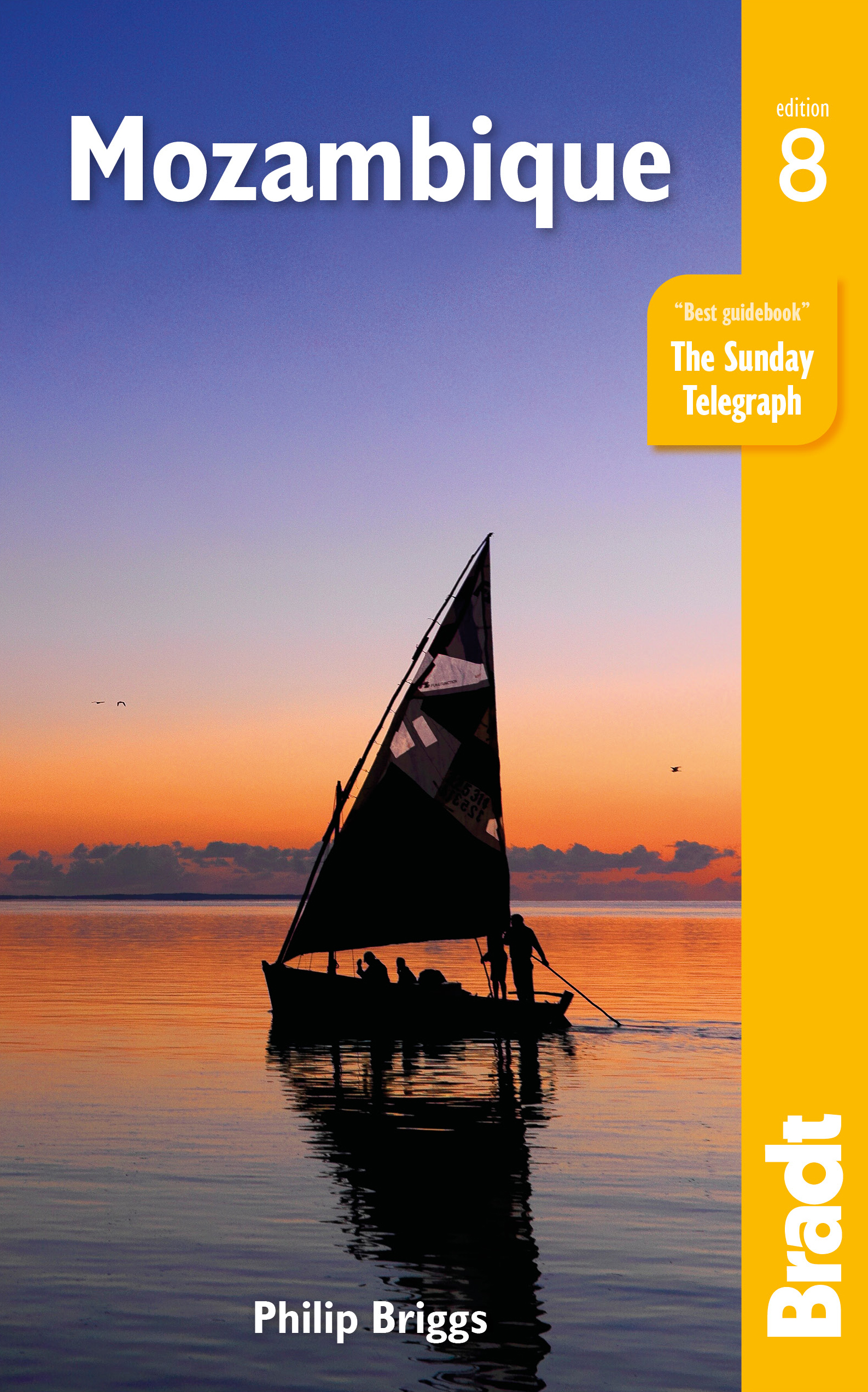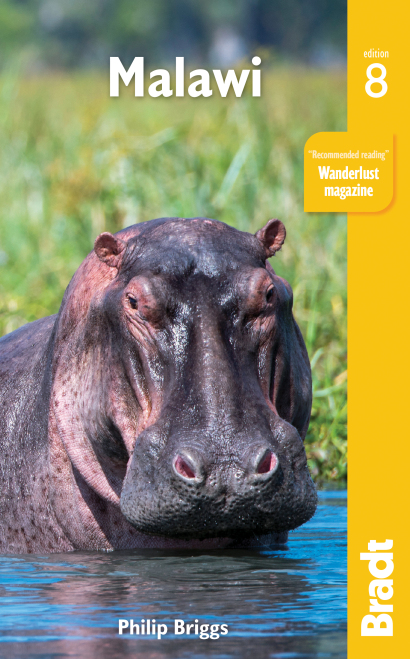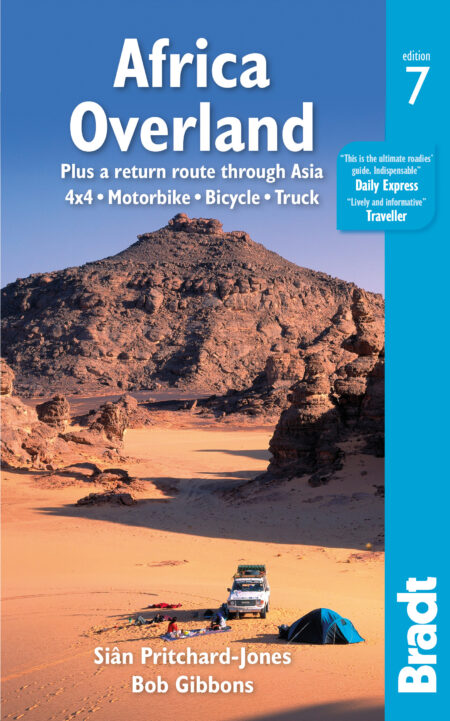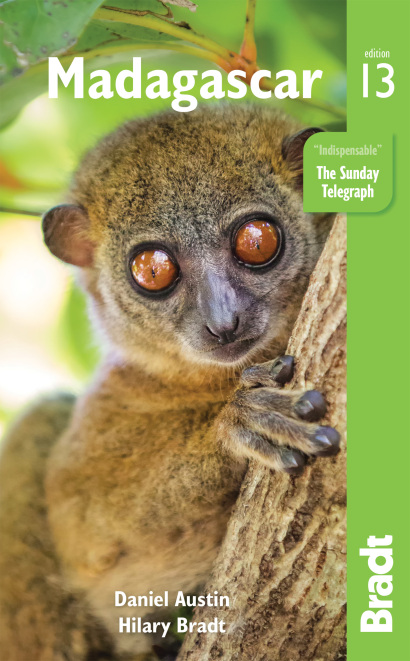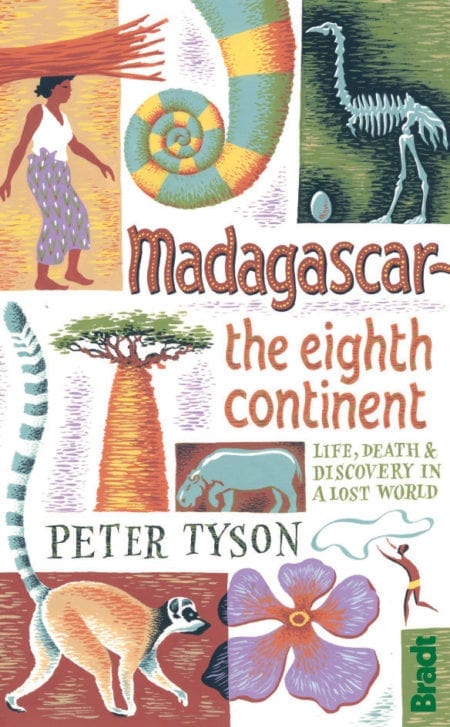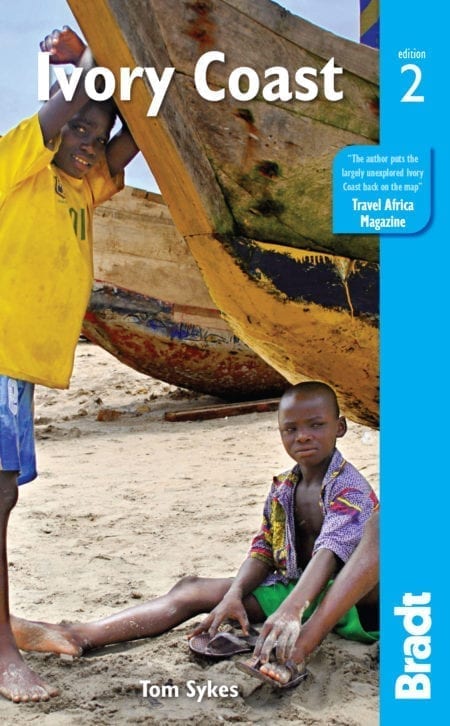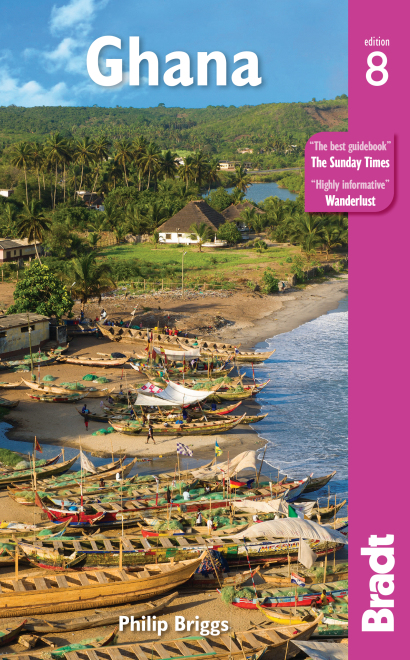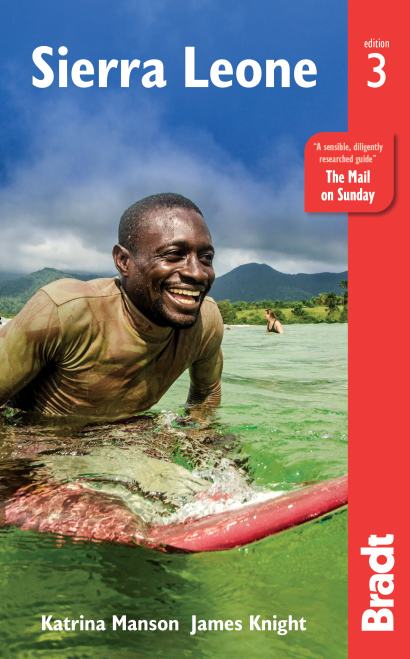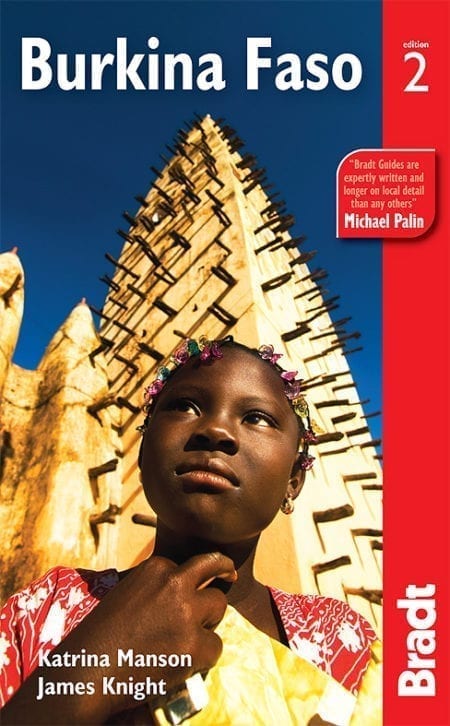Mozambique
by Philip Briggs
Mozambique travel guide – holiday travel tips covering wildlife, safaris, Maputo hotels and restaurants, beaches, highland forests, UNESCO sites, trekking, diving and snorkelling. Also features parks and reserves such as Limpopo, Bazaruto and Gorongosa; Ilha de Moçambique; Mount Namuli; Inhambane; tea plantations; and ancient art.
Size: 135 X 216 mm
Edition: 8
Number of pages: 344
About this book
Now in its eighth edition, Bradt’s Mozambique remains the most established and sole standalone guide to this alluring African country. In-depth coverage of wildlife, history, culture, and diving and snorkelling is complemented by invaluable, up-to-date practical advice on travel and accommodation, presented in an easy-to-navigate geographical structure . Originally written by Philip Briggs, this new edition has been updated by Africa experts Huw and Kate Hennessy, authors of several previous Bradt guides.
Mozambique is a country of two halves. The tourism-savvy south offers romantic tropical beaches, luxury lodges and world-class diving, plus the tree-lined capital of Maputo, a city oozing Afro-Mediterranean flair. By contrast, the less-developed north is one of Africa’s last frontiers, with excitingly vast game reserves and idyllic coastal panoramas that entice intrepid travellers and those hankering after barefoot luxury.
With its national park set-up expanded and refurbished, Mozambique looks set to reclaim its standing as one of Africa’s top safari destinations. Moreover, although one of the continent’s fastest developing tourist countries, it still offers opportunities to experience ‘quintessential Africa’. As Mozambique approaches 50 years since independence, development boosted by one of Africa’s highest economic growth rates and a swift resurgence following 2019’s devastating cyclone are drawing tourists back to a forest-clad interior descending to 2,500km of pristine, palm-fringed coastline.
Bradt’s Mozambique reveals a country dotted with natural, historical, cultural, and architectural wonders that reflect a history that fuses exploration, trade, and culture. Highlights include the UNESCO World Heritage Site of Ilha de Moçambique, a 16th-century Arab and Portuguese trading post; ancient rock art at Chinhamapere; adventurous journeys by train and Arab dhow; the birdlife of Mount Namuli, accessed from the tea-plantation town of Gurué; surfing in Tofo; and diving or snorkelling in biologically rich seas, including around Bazaruto, home to some of Africa’s last remaining dugongs, five of the world’s seven endangered sea turtle species, and two thousand species of fish.
Whether you are a culture vulture or wildlife enthusiast, a watersports enthusiast or honeymooning couple, the in-depth coverage and practical advice for all budgets means that Bradt’s Mozambique has everything you need to plan a thrilling holiday.
Before ordering ebooks from us, please check out our ebook information.
About the Author
Philip Briggs (www.philipbriggs.com) is a travel writer specialising in Africa. Raised in South Africa, where he still lives, Philip first visited East Africa in 1986 and has since spent an average of six months annually exploring the highways and back roads of the continent. His first Bradt Travel Guide, to South Africa, was published in 1991. Over the rest of the 1990s, Philip wrote a series of pioneering Bradt travel guides to destinations that were then – and in some cases still are – otherwise practically uncharted by the travel publishing industry. These include guides to Tanzania, Uganda, Ethiopia, Malawi, Mozambique, Ghana, Rwanda, Somaliland and East African wildlife – new editions of which have been published ever since. Philip has contributed to more than a dozen other books about Africa, and his work regularly appears in magazines such as Africa Geographic, Travel Africa and Wanderlust.
Additional Information
Table of ContentsIntroduction viii
PART ONE GENERAL INFORMATION 1
Chapter 1 Background Information
Geography 3, Climate 4, History 4, Government and
politics 20, Economy 20, People 24, Language 25,
Religion 26, Culture 26
Chapter 2 Natural History 29
Vegetation 29, Mammals 30, Birds 32, Reptiles 35, Marine
life 37
Chapter 3 Practical Information 41
When to visit 41, Highlights 41, Tourist information 42,
Tour operators 42, Red tape 44, Getting there and
away 46, Crime and safety 50, Women travellers 52,
LGBTQ+ travellers 52, Travelling with a disability 52,
Travelling with children 53, What to take 53, Money 55,
Budgeting 56, Getting around 57, Accommodation 61,
Eating and drinking 64, Public holidays 66, Shopping 66,
Photography 67, Media and communications 68,
Responsible tourism 69, Getting involved 70
Chapter 4 Health 72
Preparations 72, On the road 73, Safety and security 78
Chapter 5 Diving and Snorkelling 79
Choosing an operator 79, Preparations before diving 79,
During the dive 82, Snorkelling 85
PART TWO SOUTHERN MOZAMBIQUE 87
Chapter 6 Maputo 91
History 92, Getting there and away 94, Getting around 98,
Where to stay 99, Where to eat and drink 104, Nightlife
109, Safety and hassles 110, Entertainment 111, Shopping
113, Other practicalities 115, What to see and do 117, City
walks 118, Day trips from Maputo 121
Chapter 7 South of Maputo 125
Inhaca Island 125, Katembe 129, Bela Vista and
Salamanga 132, Maputo National Park 132, Ponta Mamoli
and Malongane 135, Ponta do Ouro 137
Chapter 8 The Limpopo Valley and Coast South of Inhambane 143
Marracuene and surrounds 144, Bilene 144,
Limpopo National Park 146, Xai-Xai 150, Northeast
of Xai-Xai 156
Chapter 9 Inhambane, Tofo and Surrounds 159
Inhambane 159, Maxixe 165, Beaches around
Inhambane 167, North of Inhambane 179
Chapter 10 Vilankulo, Inhassoro and Bazaruto National Park 181
Vilankulo 181, Inhassoro 191, Bazaruto National Park 194
PART THREE CENTRAL MOZAMBIQUE 199
Chapter 11 Beira 203
History 203, Getting there and away 204, Orientation and
getting around 206, Where to stay 206, Where to eat and
drink 210, Other practicalities 211, What to see and do 212
Chapter 12 Chimoio and the Manica Highlands 217
Chimoio 217, Lake Chicamba 223, Manica 224,
Penhalonga 228, Chimanimani National Reserve 229
Chapter 13 Gorongosa and the Caia Road 233
Gorongosa National Park 233, Mount Gorongosa 238,
The N1 from Inchope to Caia 238
Chapter 14 Tete 244
Tete 245, Around Tete 251
PART FOUR NORTHERN MOZAMBIQUE 257
Chapter 15 Zambézia 261
Quelimane 261, The Quelimane-Nampula Road 268, The
Western Highlands 273
Chapter 16 Nampula 282
Getting there and away 282, Where to stay 283, Where to
eat and drink 286, Other practicalities 286, What to see
and do 287, Around Nampula 287
Chapter 17 Ilha de Moçambique and Surrounds 293
History 294, Getting there and away 298, Where
to stay 298, Where to eat and drink 301, Shopping
302, Other practicalities 303, Exploring Ilha de
Mocambique 304, Mossuril Bay 309, Nacala 313
Appendix 1 Language 318
Appendix 2 Further Information 322
Index 326
Index of Advertisers 332
